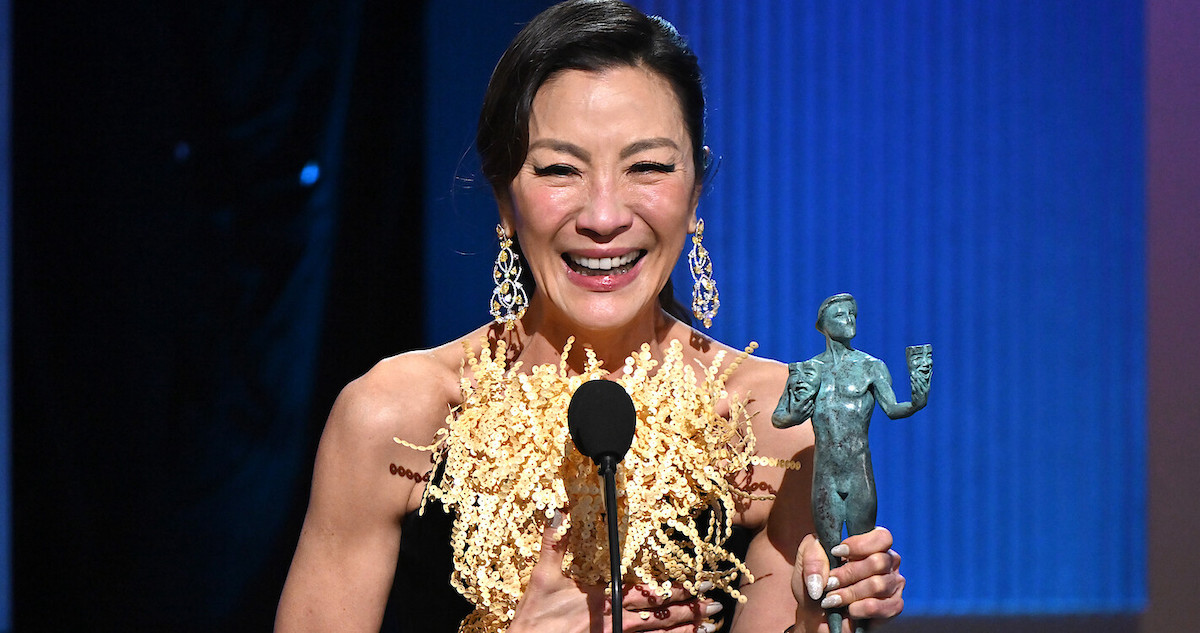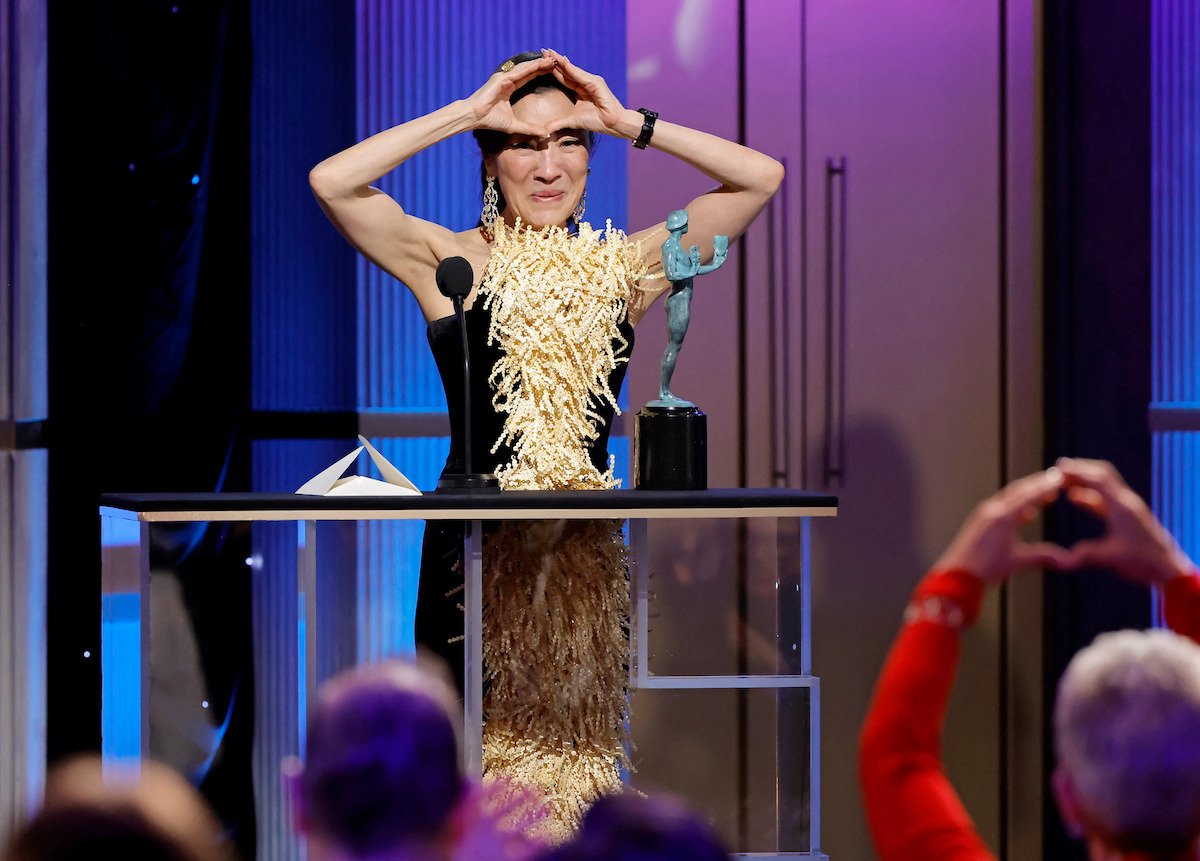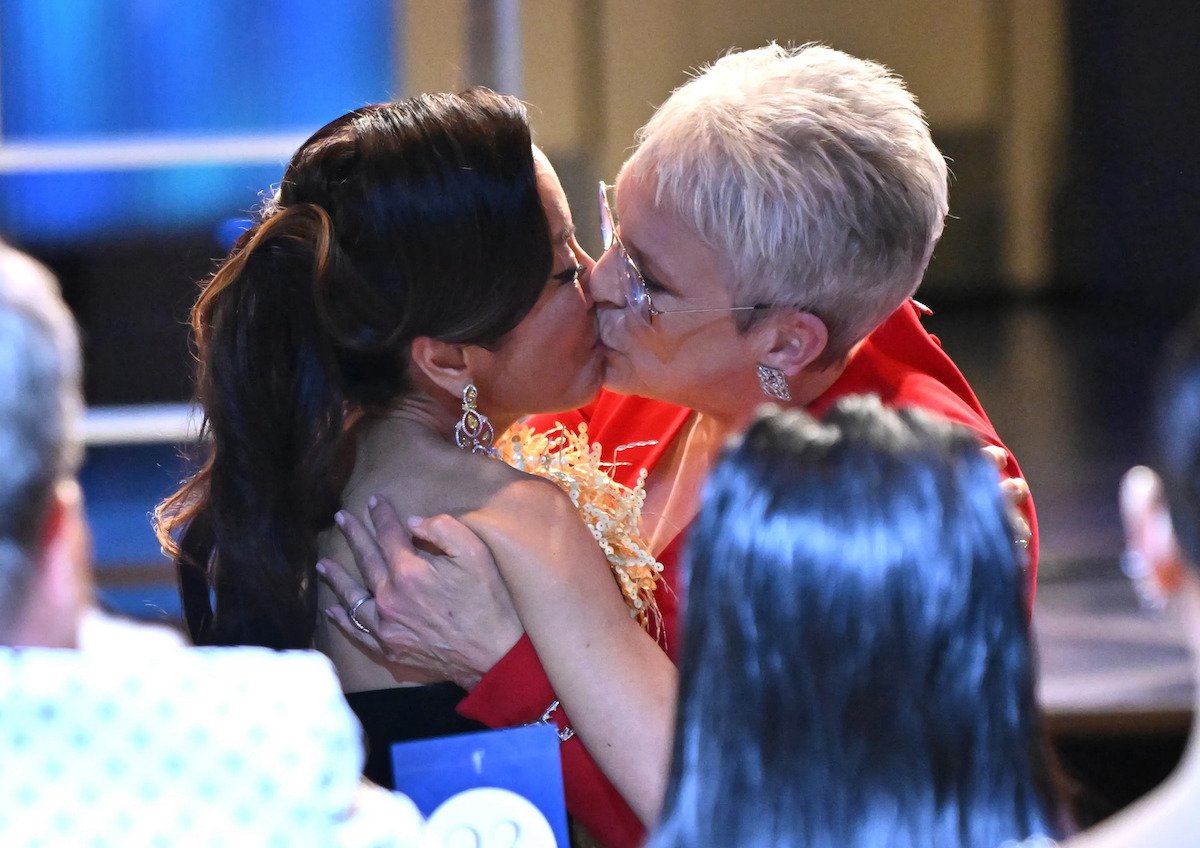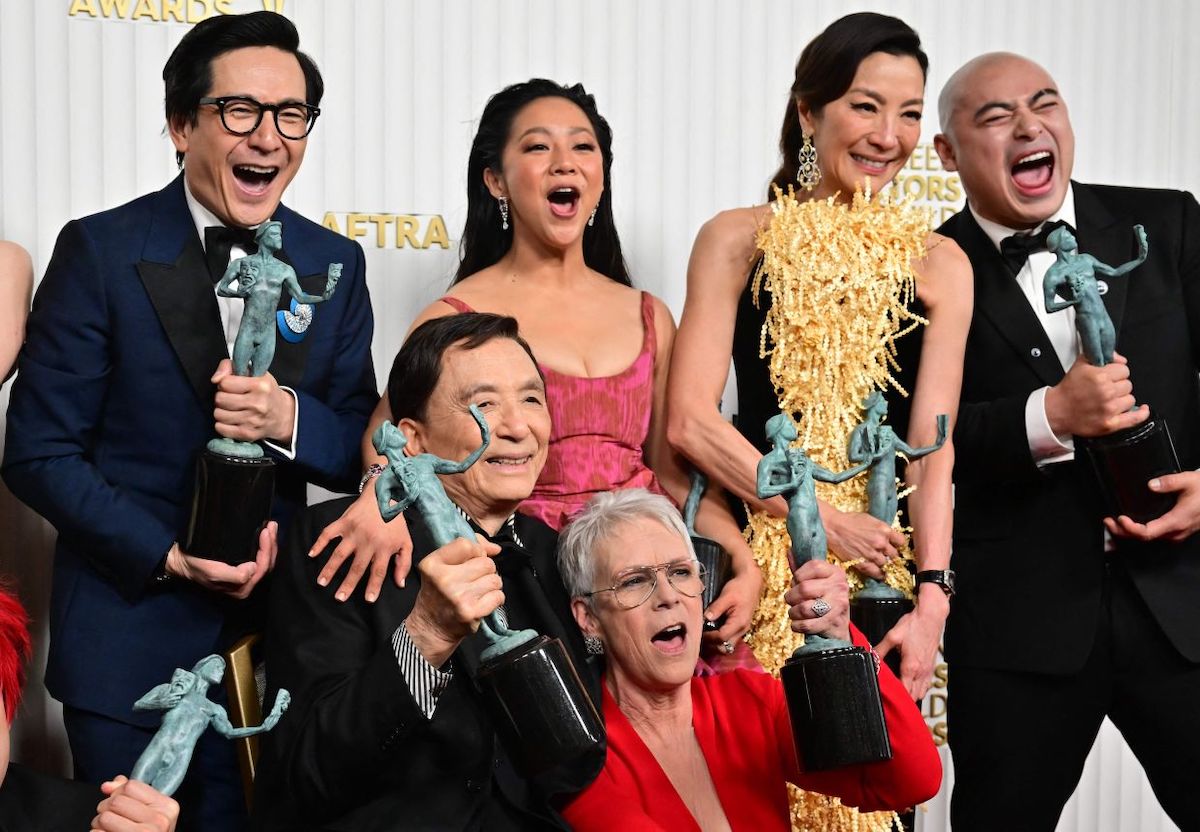This Is Why Michelle Yeoh’s SAG Awards Win Is So Important

In this version of the multiverse, Michelle Yeoh is making history. On Sunday, February 26, 2023 Michelle Yeoh became the first Asian woman to win a Screen Actors Guild (SAG) award in the show’s 29-year history. She had been nominated for Outstanding Performance by a Female Actor for her role as Evelyn Quan Wang in Everything Everywhere All at Once, directed by Daniels.
She has already won 13 awards for her performance, the most prominent of which was a Golden Globe Award. She dedicated her Golden Globe award to “all the shoulders that I stand on, all who came before me, who looks like me, and all who are going on this journey with me forward.” Her gratitude was not only to the Hollywood Foreign Press Association but also to her audience: “Thank you for believing in us.”

Yeoh is only the second Asian woman to be nominated for a SAG award. Ziyi Zhang was nominated in 2006 for her role as Chiyo Sakamoto/Sayuri Nitta in Memoirs of a Geisha (2005), but did not win (spoiler alert, 18 years later: it was Reese Witherspoon).
The nominees at the 29th SAG awards were the most ethnically diverse in the award’s history. Yeoh’s fellow nominees were Cate Blanchett as Lydia Tár in Tár, Viola Davis as General Nanisca in The Woman King, Ana de Armas as Norma Jeane Mortensen/Marilyn Monroe in Blonde, and Danielle Deadwyler as Mamie Till-Mobley in Till. Yeoh began her acceptance speech by playfully pounding the podium, making heart hands over her forehead, and holding back tears the whole time. One of the most memorable moments of her speech, set to the sound of her Schiaparelli haute couture dress crunching in the microphone, was her adorably unexpected use of “Shit!” and “Fuck!” Her passionate candor inspired smiles and laughs from her fellow cast members as well as from Cate Blanchett and Viola Davis.
Yeoh thanked SAG-AFTRA for “giving me a seat at the table. Because so many of us need this. We want to be seen. We want to be heard. And tonight, you have shown us that it is possible.” Yeoh had been preceded by Ke Huy Quan, who himself was the first Asian man to win a SAG award. Kwan won for Outstanding Performance by a Male Actor in a Supporting Role, and his acceptance speech harmonized with Yeoh’s sentiments when he said, “to all those at home who are watching, who are struggling and waiting to be seen, please keep on going because the spotlight will one day find you.”
Yeoh and Quan were also joined by Jamie Lee Curtis, who won Outstanding Performance by a Female Actor in a Supporting Role. In a surprising moment that mirrored a scene from Everything Everywhere All At Once, Curtis kissed Yeoh on the lips before walking to the stage. She then led a cheer during her own acceptance speech celebrating Yeoh: “When I say ‘Michelle,’ you say ‘Yeoh!'”

In an especially poignant moment, Yeoh, Quan, and Curtis were joined by James Hong, Stephanie Hsu, Andy Le and Brian Le, Tallie Medel, Harry Shum Jr., and Jenny Slate to accept the award for Best Outstanding Performance by a Cast in a Motion Picture. The cast honored Hong by giving him the microphone for most of the allotted screen time. Yeoh introduced him by saying: “There’s been one who has been supporting ensembles for longer than any of us have been alive.”
Hong explained the importance of Asian representation in Hollywood in a way only a 94-year old Asian actor with a career than spans 70 years could. Using The Good Earth (1937) as an example, he said: “Back in those days, I have to tell you this … the leading roles were played by these guys with their eyes taped up.” Hong mimicked the way Hollywood has mocked Asian facial features before continuing, “Because the producers said that Asians were not good enough, and they are not box office. But, look at us now, huh?”
This amount of visibility for Asians and Asian Americans—behind the camera, in front of the camera, onscreen, and onstage at awards shows—is historical. Especially for a people whose cultural heritage has been historically fetishized, mocked, and ignored in Hollywood, these wins are long overdue.

Yeoh has also been nominated for an Academy award. This is her first nomination, and it is unprecedented because she is only the second Asian woman to be nominated in the Best Actress category in Oscar history. British actor Merle Oberon was nominated in 1935, but because she had hidden her mixed Sri Lankan and Māori ancestry from the public throughout her career, no one knew at the time that she was actually the first nominee of Asian ancestry. The Japanese actor Miyoshi Umeki was the first—and remains the only—woman Asian woman to win an Academy Award, when she won Best Supporting Actress for her role in Sayonara (1957).
At the 95th Academy Awards on Sunday, March 12, 2023, Michelle Yeoh might make history again.
(featured image: Rob Latour/Shutterstock for SAG Awards)
Have a tip we should know? [email protected]
